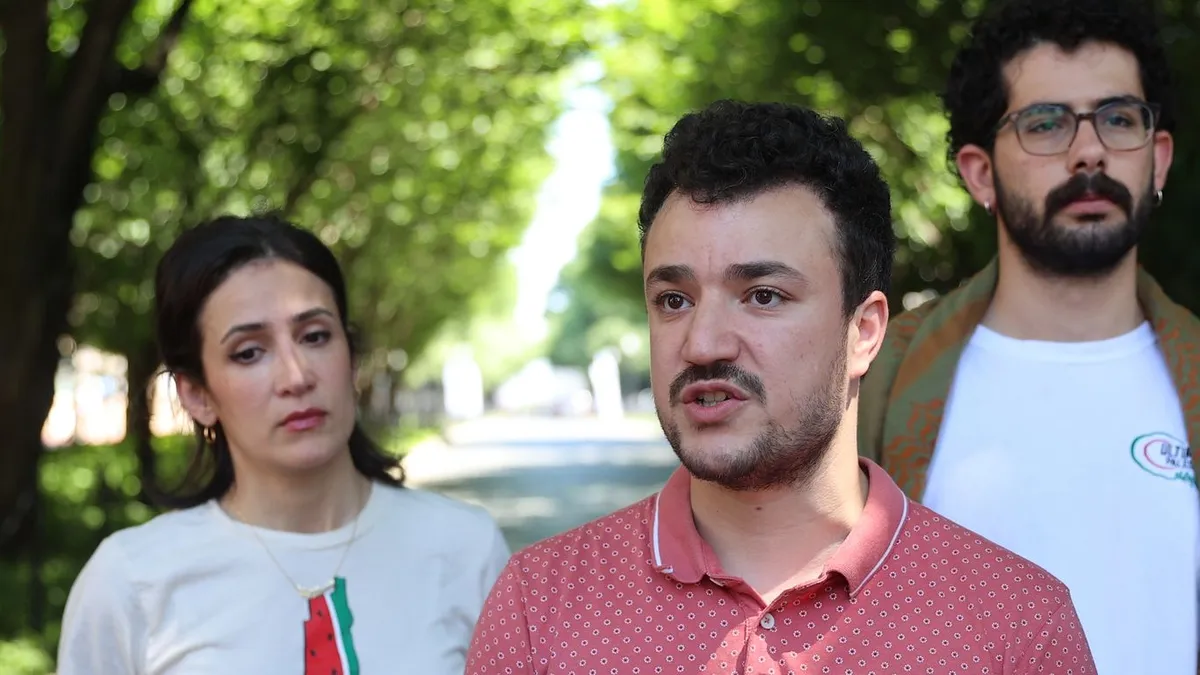
In a significant update, the federal government announced on Friday that the ongoing detention of Khalil does not breach the court's injunction issued on Wednesday. The administration contended in a letter that Khalil's detention could not solely be justified by Secretary of State Marco Rubio's claims that Khalil poses a threat to U.S. foreign policy. Instead, the basis for Khalil's continued detention is now being attributed to other factors, primarily that he was undocumented upon entering the United States.
The administration further explained that individuals like Khalil may be detained while awaiting removal proceedings, regardless of the reasons for their potential deportation. Khalil has the option to pursue his release through established administrative channels, first by appealing to an officer of the Department of Homeland Security (DHS), and if necessary, through a custody redetermination hearing before an immigration judge.
However, this argument was explicitly challenged by Judge Michael Farbiarz in his initial injunction. He noted that evidence shows lawful permanent residents are rarely detained based on allegations such as those against Khalil. This observation suggests that it is indeed the Secretary of State's determination that is primarily influencing Khalil's ongoing detention, rather than the other charges he faces.
Brett Max Kaufman, senior counsel at the ACLU's Center for Democracy, expressed deep concern over the government's tactics, stating, "Like it has for the past three months, the government is using all of the tools available to it to delay justice for Mahmoud." Kaufman emphasized that the government rarely detains individuals under similar circumstances and accused them of punishing Khalil for his expression of speech. "We will not stop until he's home with his family," he affirmed.
The urgency of the situation was heightened when the administration failed to meet its 9:30 am deadline to respond to the injunction that mandated Khalil's release from detention. Following the missed deadline, Khalil's legal team issued a statement to Axios, demanding his immediate release, stating that the time for action had long since passed. The Department of Justice and the DHS did not provide a timely comment to Axios regarding the situation.
Khalil's detention, as a prominent figure in Columbia University's pro-Palestinian protests and a U.S. green card holder from Syria, has ignited widespread protests across the nation. In response to pressures from former President Trump concerning the university's federal funding, Columbia took drastic measures by suspending and expelling other students and alumni involved in similar protests. Khalil's situation has become a critical touchpoint for discussions surrounding immigrants' free speech rights and pro-Palestinian activism within the U.S.
The government has asserted that it has the authority to deport noncitizens whose presence poses a threat to significant U.S. foreign policy interests, citing Secretary of State Rubio's determination. Rubio's memo points to Khalil's alleged involvement in anti-Semitic protests and disruptive actions as justification. Earlier, an immigration court judge had deemed the administration's rationale for Khalil's detention as "facially reasonable."
In a statement, Aaron Terr, director of public advocacy at the Foundation for Individual Rights and Expression, highlighted that the court ruling confirms Khalil's targeting was not due to his actions but rather his opinions. "The notion that a college student's peaceful participation in pro-Palestinian protests could significantly undermine U.S. foreign policy has always seemed implausible," he stated. Although Terr's organization is not part of Khalil's legal team, it has filed an amicus brief supporting his case.
In response to the ongoing situation, White House spokesperson Abigail Jackson claimed that Khalil obtained his student visa through fraudulent means. She emphasized that the law grants the Secretary of State the power to revoke green cards for individuals deemed a threat to American foreign policy. Jackson also noted allegations against Khalil regarding harassment of Jewish students and his role in campus protests. The assistant secretary of the DHS, Tricia McLaughlin, stated that the district court order, which was issued without proper jurisdiction, is not the final verdict. "We expect a higher court to vindicate us," she said, asserting that the government possesses the Constitution, facts, and common sense on its side.
Editor's note: This article has been updated with additional statements and developments regarding Khalil's case.